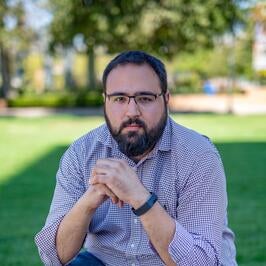
Assistant professor of computer science Evangelos Papalexakis at the Marlan and Rosemary Bourns College of Engineering (BCOE) has been awarded the prestigious National Science Foundation (NSF) CAREER Award on autonomous tensor analysis towards actionable insights from raw multi-aspect data, with applications for detecting misinformation online and detecting gravitational waves.
“I am very grateful for the generous support of NSF, which will allow my research group to focus and work on those ideas long-term,” said Papalexakis. “I am also extremely grateful for all the work done by my students and collaborators which laid the foundations for the proposed work and made all of this possible.”

Papalexakis’ research is largely focused on tensor decompositions for machine learning and data science. When applied to the real-world, it can improve computers’ detection of what content is accurate versus what we would call “fake news.”
When algorithms assess whether or not an article is trustworthy, they analyze multiple data points such as the text, images, author, publication date, and number of times it has been shared on social media.
This type of analysis, called current tensor analysis, can be effective and powerful. Unfortunately, this approach is labor-intensive: requiring lots of trial-and-error tuning, familiarity with tensor methods, and domain expertise in the target application. Because of these barriers, practitioners do not widely use this method.
The solution, as Papalexakis sees it, and the goal of this five-year NSF-funded award, is to democratize unsupervised exploratory tensor analysis – making it more accessible while producing actionable insights from the data. While other projects in meta-learning have been focused on automating supervised models, Papalexakis’ project has the potential to create a new field of unsupervised exploratory meta-learning. This is the first task of the project.
The second task will focus on real-world collaboration with domain experts in two distinct yet related scientific areas: in the web and in the cosmos. While the project will provide earth-bound tools to better judge the trustworthiness of news online, it also has out-of-this world implications. New findings could help scientists understand cosmic objects that do not emit light, commonly known as black holes, helping us unravel current mysteries of the universe.
Papalexakis plans to integrate this research into undergraduate and graduate Data Science curricula, which is a newly offered undergraduate major at UCR, mentor undergraduate students from underrepresented groups, and organize summer workshops for local school districts to broaden Data Science in high school education.
NSF CAREER Awards are awarded to assistant professors to fund research that is expected to form a firm foundation for a lifetime of leadership in integrating education and research.